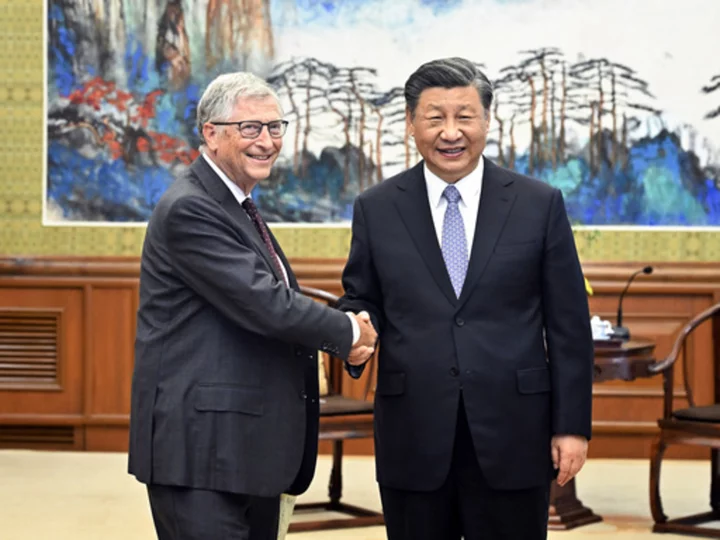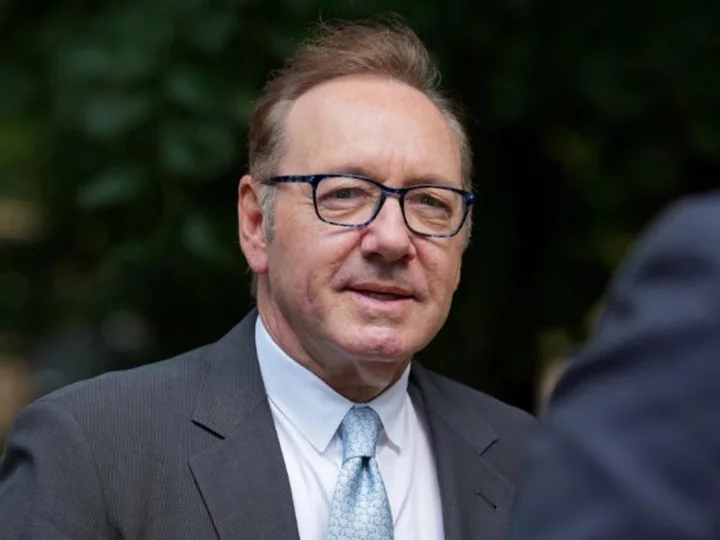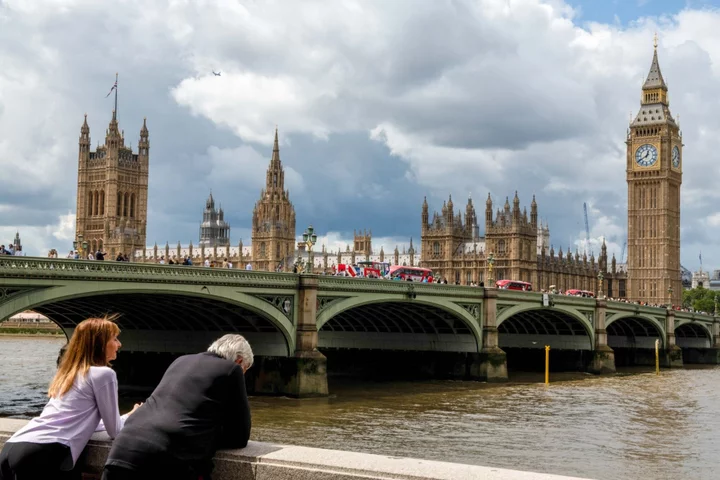From the co-founder of retail giant Marks & Spencer to the owners of a family-run Chinese takeaway, a new exhibition is showcasing migrant entrepreneurs and the role they played in moulding Britain.
They have "shaped all aspects of our lives, from the clothes we wear, to the food we eat, to the apps on our phone, the furniture in our homes," Matthew Plowright, the Migration Museum's director of communications and engagement, told AFP.
At the museum based inside a south London shopping centre, visitors can wander through areas dedicated to various types of migrant-owned businesses found on a typical British high street, from restaurants to corner shops.
The "Taking Care of Business" exhibition runs until late September and explores the origins of many British companies that were founded by immigrants and have since become household names.
One example is the retailer Marks & Spencer, which was co-founded by Michael Marks who was born into a Polish Jewish family that immigrated to Britain in 1882.
Another comes from Britain's first coffeehouse chain Costa Coffee, which was founded by brothers Sergio and Bruno Costa, who arrived from Italy in the 1950s.
- Immigration debate -
But the exhibition also retraces the journeys of dozens of migrants who may not be known by name but are among those who came to the UK to seek refuge from oppressive regimes, escape poverty or simply to study and launch a business.
Among them are Gary and Jin Hui, who emigrated from Hong Kong in the mid-1980s and set up a Chinese takeaway restaurant in South Wales.
Their daughter Angela, 31, recreated their family-run restaurant for the exhibition, bringing back memories of the many hours she and her brothers spent helping their parents, who didn't speak English, at work.
"British history is so complex, through colonialism, and I think a lot of people don't understand it" when it comes to immigration, she said.
Migrants from the Caribbean, Jews fleeing persecution in Europe, students from India and from former colonies in Africa: understanding their stories can "help us to contextualise and think about contemporary debates around migration in a slightly different way", Plowright said.
Business owner Nomshado Michelle Baca arrived in Britain as a young girl, travelling from Zimbabwe with her mother in 1996.
After attending business school and working in fashion for several years, Baca launched her own business called "A Complexion Company", creating wellness and beauty products tailored for black women.
Baca said that many of the points made in the debate surrounding immigration -- a live political issue in the UK -- are "very short-sighted".
"The UK has always been one of the greater trading places in the world and now, to forget about it is not just harmful to individuals who are immigrants, but it is also harmful to Britain," Baca told AFP.
Immigration has long been the subject of heated debate in the UK and the ruling Conservative party has pledged to curb migration, which hit record numbers last year, after Britain voted in 2016 to leave the European Union.
- 'Not a coincidence' -
"Often when people talk and think about immigration in the news and in politics, it is in these very impersonal debates about numbers or facts and figures," Plowright said.
The exhibition aims to "bring to life the personal stories, the stories behind the headlines", he added.
One in seven British businesses have been either founded or co-founded by an immigrant, according to a study by the UK's Centre for Entrepreneurs.
Three of the country's six wealthiest people were not born in Britain, according to this year's Sunday Times Rich List, which was topped by Indian-born billionaire Gopi Hinduja and family.
Plowright said "it's probably no coincidence that migrants are disproportionately more likely to found their own business".
"When you arrive, often you don't have access to the networks, the connections... and so often you have to do it alone," he said.
But the exhibition is not just about celebrating success stories.
It is also about "embracing the complexity and highlighting the discrimination and the challenges and the difficulties many of these business owners and people continue to face today," Plowright added.
mhc-acl/phz/rl









